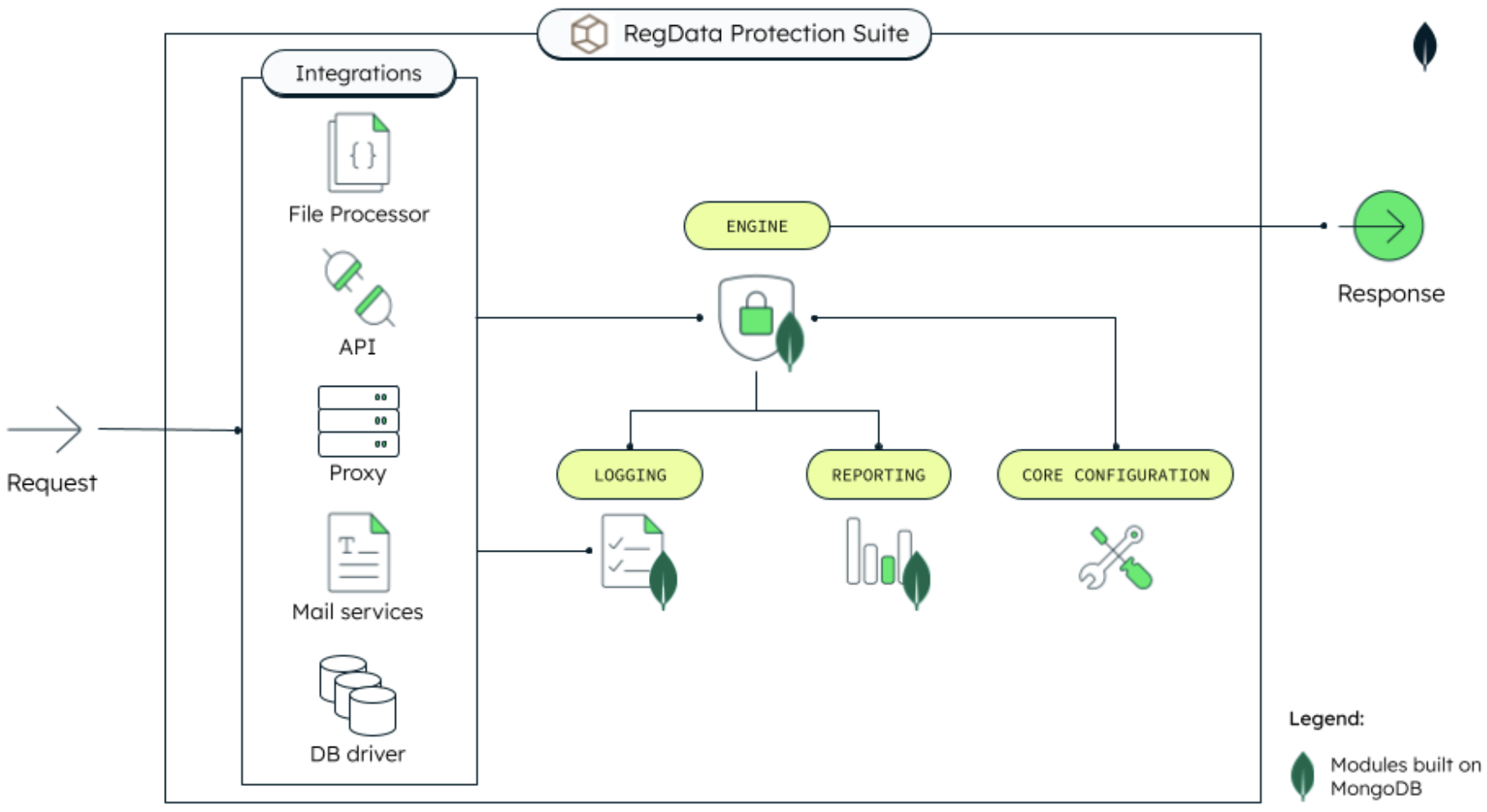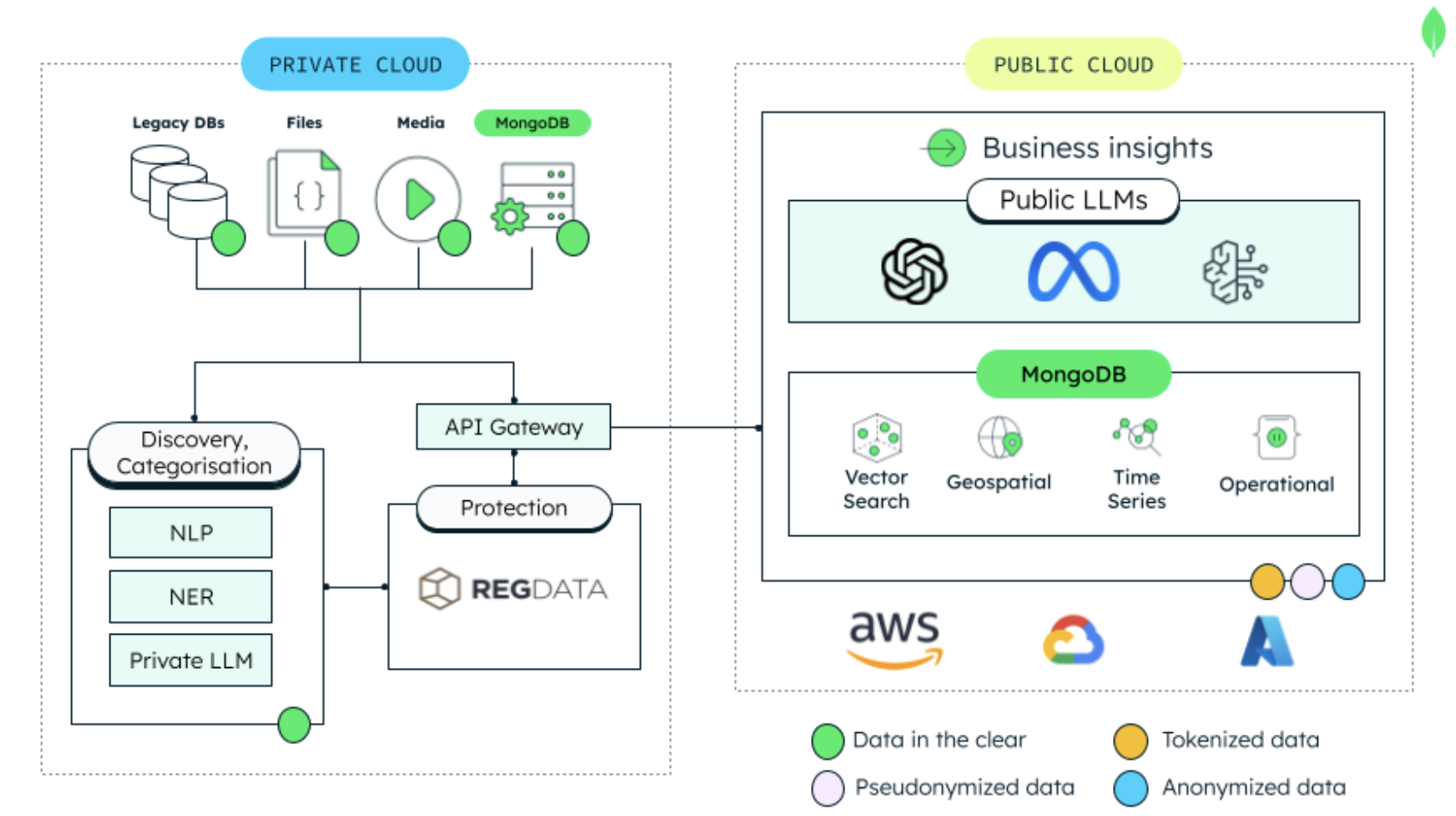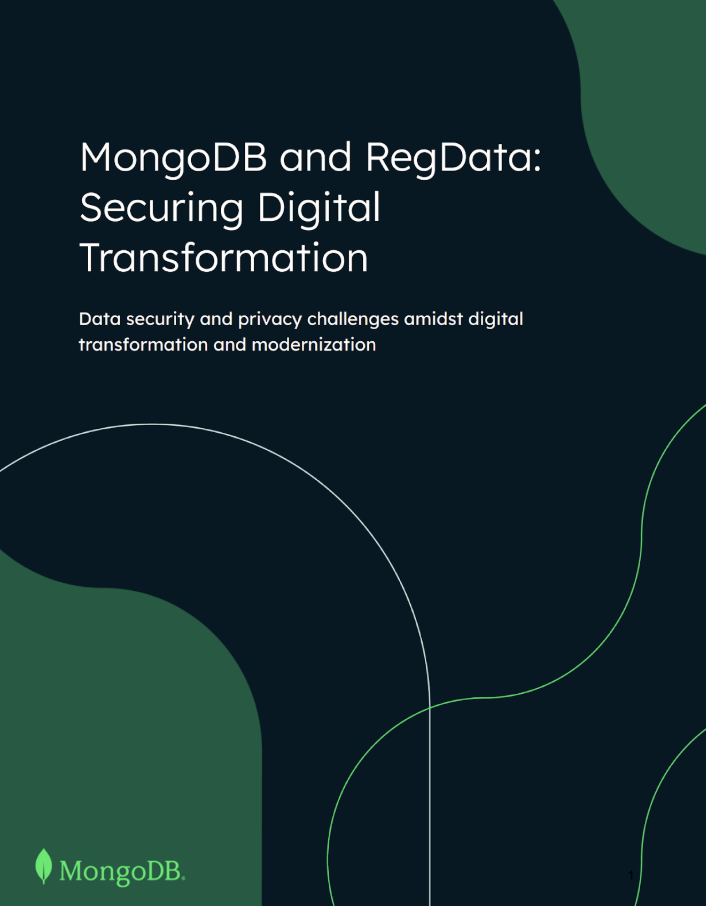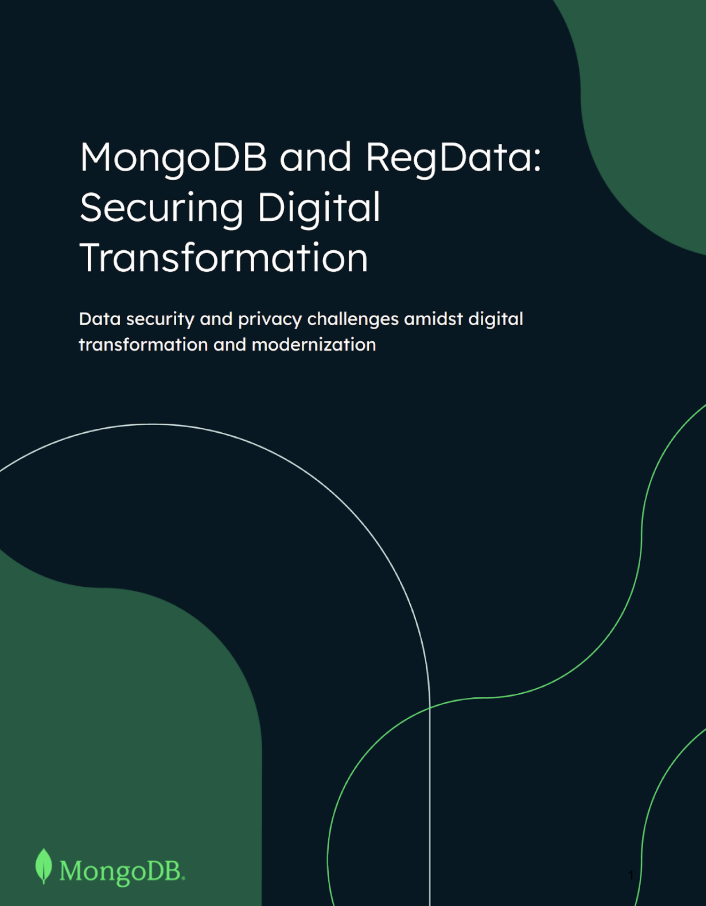Data security and privacy have long been paramount to the financial industry, but they are especially critical for institutions undergoing digital transformations or those implementing new technology. For example, the integration of artificial intelligence (AI) and machine learning (ML) into organizations’ infrastructure and offerings introduces security and privacy complexities, making it all the more essential for financial organizations to safeguard sensitive information while complying with regulations.
The consequences of a data breach are extensive and significantly impactful. These incidents have transformed from simple cybersecurity concerns into catalysts for financial losses, reputational harm, legal challenges, regulatory penalties, and a significant decline in consumer trust. Even with an increased focus on data security, organizations must adopt modern data architecture to effectively mitigate these risks.
For example, using a database solution like MongoDB with built-in encryption, role-based access control, and audit logging can help organizations safeguard sensitive data and respond proactively to potential vulnerabilities.
The challenge of data security in finance
Financial institutions face numerous challenges in protecting data integrity during modernization efforts. The increasing sophistication of cyberattacks, coupled with the need to comply with evolving regulations like the General Data Protection Regulation (GDPR) and the Digital Operational Resilience Act (DORA), creates a complex environment for data management. Institutions must also navigate technical sprawl, where diverse applications and data management systems complicate compliance and operational efficiency.
Addressing these challenges requires a holistic approach that integrates data protection into the core design of digital transformation initiatives. Financial institutions need to adopt robust data management practices, ensure the encryption of sensitive data, and maintain vigilant cybersecurity measures. Collaboration with trusted third-party vendors, adopting a privacy-first strategy, and complying with global data protection regulations are essential steps toward safeguarding data privacy in this rapidly evolving digital landscape.
Discover how the RegData Protection Suite (RPS), built on MongoDB, enables you to balance technological advancement with regulatory requirements.
The solution: MongoDB and RegData
MongoDB offers unparalleled reliability, scalability, and flexibility, making it an ideal choice for financial services. MongoDB enables financial institutions to combine operational and AI data in a unified interface and can be deployed on-premises with Enterprise Advanced or across any major cloud provider with MongoDB Atlas, multi-cloud, and hybrid cloud when needed. When combined with RegData’s Protection Suite (RPS), organizations can effectively tackle the challenges of digital transformation. RPS is a cloud-native application security platform designed to protect sensitive data through advanced techniques such as encryption, anonymization, and tokenization.

Key Features of RegData Protection Suite:
-
Core Configuration: Provides services and a user interface to configure the protection of data.
-
RPS Engine: A sophisticated core engine equipped with various data protection tools. This module is the heart of the application and is responsible for all data protection. Consists of encryption, anonymization, tokenization, and pseudonymization
-
RPS Reporting: A vital component focused on data protection oversight. It gathers and analyzes information on the business application activities protected by RPS to generate a range of valuable reports
-
RPS Manager: Provides end-to-end monitoring capabilities for the components of the RPS platform.
-
RPS Integration: RPS seamlessly integrates with various applications, ensuring that sensitive data is protected across diverse environments.
The synergy between MongoDB and RegData shines through in practical applications. For instance, a private bank can leverage hybrid cloud deployments to modernize its operations while maintaining data security. By utilizing RPS, the bank can protect sensitive information during cloud migrations and ensure compliance with regulatory requirements.
Additionally, as financial institutions explore outsourcing, RPS helps mitigate risks by anonymizing sensitive data, allowing organizations to maintain control over their data even when leveraging external service providers.
Embracing a zero-trust approach for gen AI applications
With the rise of AI (and particularly gen AI), banks are developing increasingly more AI- and gen AI-powered applications. While on-premise AI/gen AI model development and testing provides a high level of data security and confidentiality, it may not be within the bank’s budget to afford a production-grade GPU compute pool or one that is large enough to offer sufficient scalability and economy of scale. With this dilemma, banks have begun developing models in private clouds and then deploying on the public cloud to leverage its scalability and economy of scale.
MongoDB can serve as that unified operational data layer for a variety of data sources, structured, semi-structured, or unstructured that may also come in different forms (eg. tabular, geospatial, network graph, time series, etc.) for the model development, training, fine-tuning and/or testing. When the model is tested and found to be working, it can then be deployed to the public cloud to serve the AI/gen AI applications.
The figure below shows the high-level architecture of how a private bank implemented its gen AI application with MongoDB and RPS.

The road to modernization
As financial institutions navigate the complexities of digital transformation, the partnership between MongoDB and RegData offers a robust solution for securing data. By adopting a comprehensive data protection strategy, organizations can innovate confidently while ensuring compliance with regulatory standards. Embracing these technologies not only enhances data security but also paves the way for a more resilient and agile financial sector.
Establishing a robust data architecture with a modern data platform like MongoDB Atlas enables financial institutions to effectively modernize by consolidating and analyzing data in any format in real-time, driving value-added services and features to consumers while ensuring privacy and security concerns are adequately addressed with built-in security controls across all data. Whether managed in a customer environment or through MongoDB Atlas, a fully managed cloud service, MongoDB ensures robust security with features such as authentication (single sign-on and multi-factor authentication), role-based access controls, and comprehensive data encryption. These security measures act as a safeguard for sensitive financial data, mitigating the risk of unauthorized access from external parties and providing organizations with the confidence to embrace AI and ML technologies.
Are you prepared to harness these capabilities for your projects or have any questions about this? Then please reach out to us at industry.solutions@mongodb.com or nfo@regdata.ch.
You can also take a look at the following resources:
Source: Read More




